Ondrej Markus
Entrepreneur in ed-tech, building the future of education as a founder and CEO at Playful.
I write about the future of education, designing learning games, and running a startup.
I'm a generalist, introvert, gamer, and optimizing to be useful.

Use overcompensation to find your balance
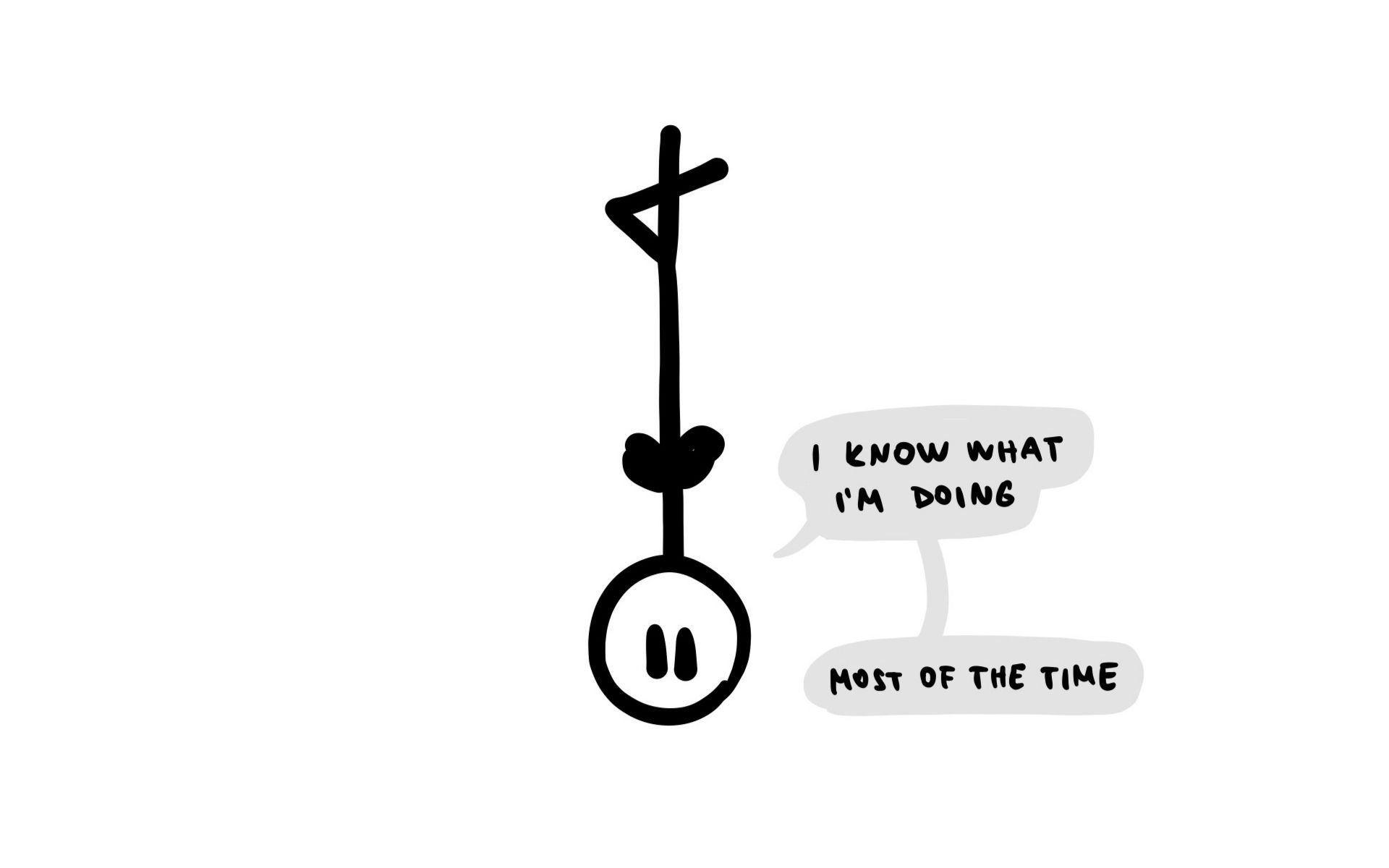
About a month ago, I wrote about how keeping a feelgood journal can help you train your brain to be more optimistic.
It’s a perfect example of going to an extreme as a form of overcompensation. And I’d argue it’s something we all do and it can be very effective if used well.
So today, I want to explore how can we use overcompensation to find the right balance in whatever we want to do.
Short-term extremes lead to long-term balance
First, let’s define overcompensation. I will lean on Mr. Oxford here:
“Overcompensation means taking excessive measures in attempting to correct or make amends for an error, weakness, or problem.” (Oxford dictionary)
We can deconstruct my optimism training as an example.
In 2014, my mind was relatively pessimistic by nature plus my relationship had just broken up in an ugly way, so I struggled to feel good about anything.
I realized this and chose to balance the scales by overcompensating in the other direction: I used a journal to write solely about the good things in my life.
I wasn’t pretending bad things didn’t happen. I wasn’t deflecting or ignoring negative emotions. I just forced my brain to focus on what it tended to overlook – the positive things – by writing about them.
The goal wasn’t to forever focus only on the positive, but to get closer to a balanced emotional state that works for me.
I used an extreme technique in the short term to reach a balanced state in the long term.
Now how does that work exactly?
The mechanics of overcompensation
The more you feel you lack something, the higher is your tendency to overcompensate for it.
If we look at optimism as a spectrum:
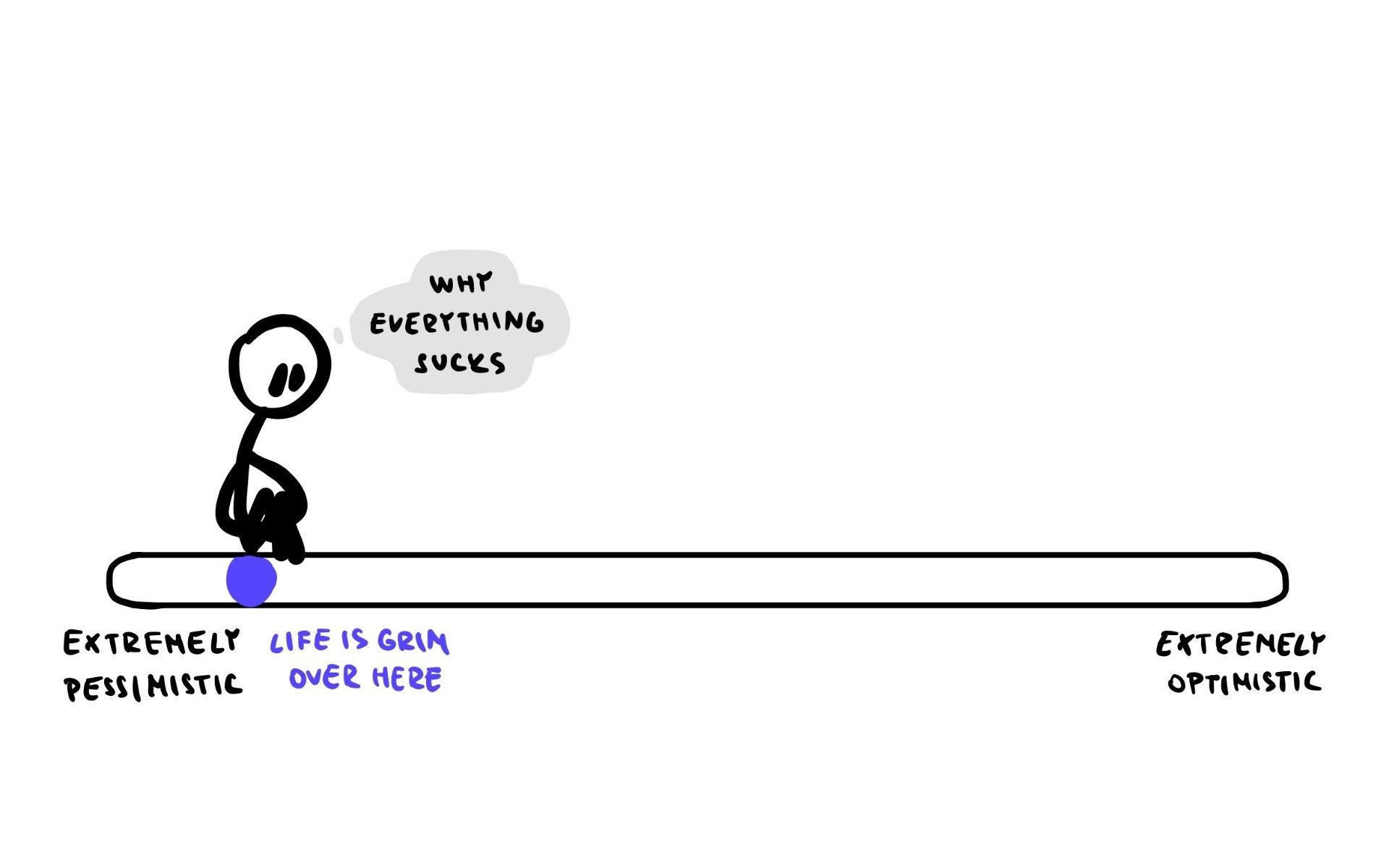
Optimism as a spectrum
The more negative tendencies you have, the more you probably need to overcompensate for a short time to balance things out.
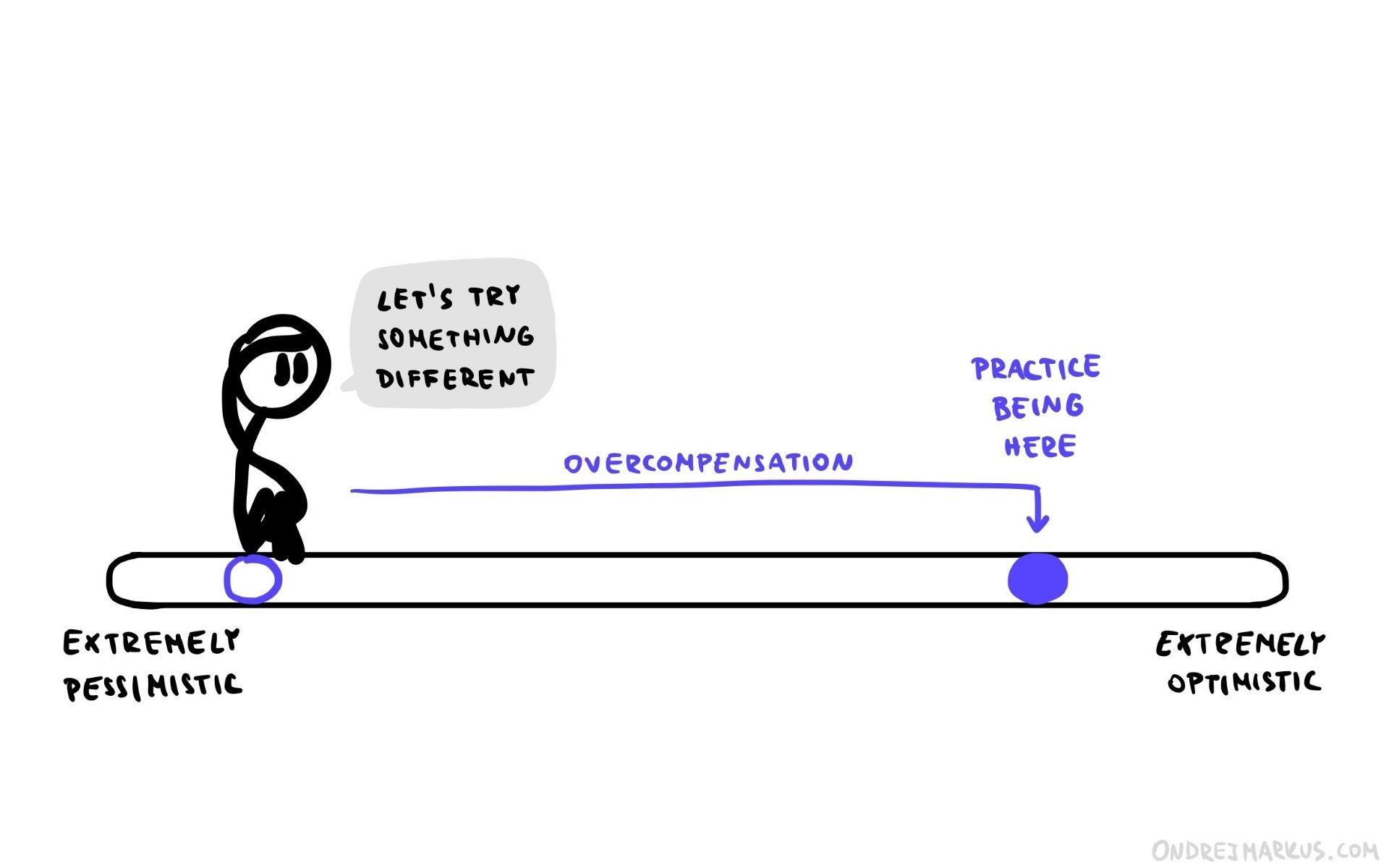
Overcompensating pessimism with a little too much optimism
With time and training, you move towards what you practice and the need to overcompensate goes down.
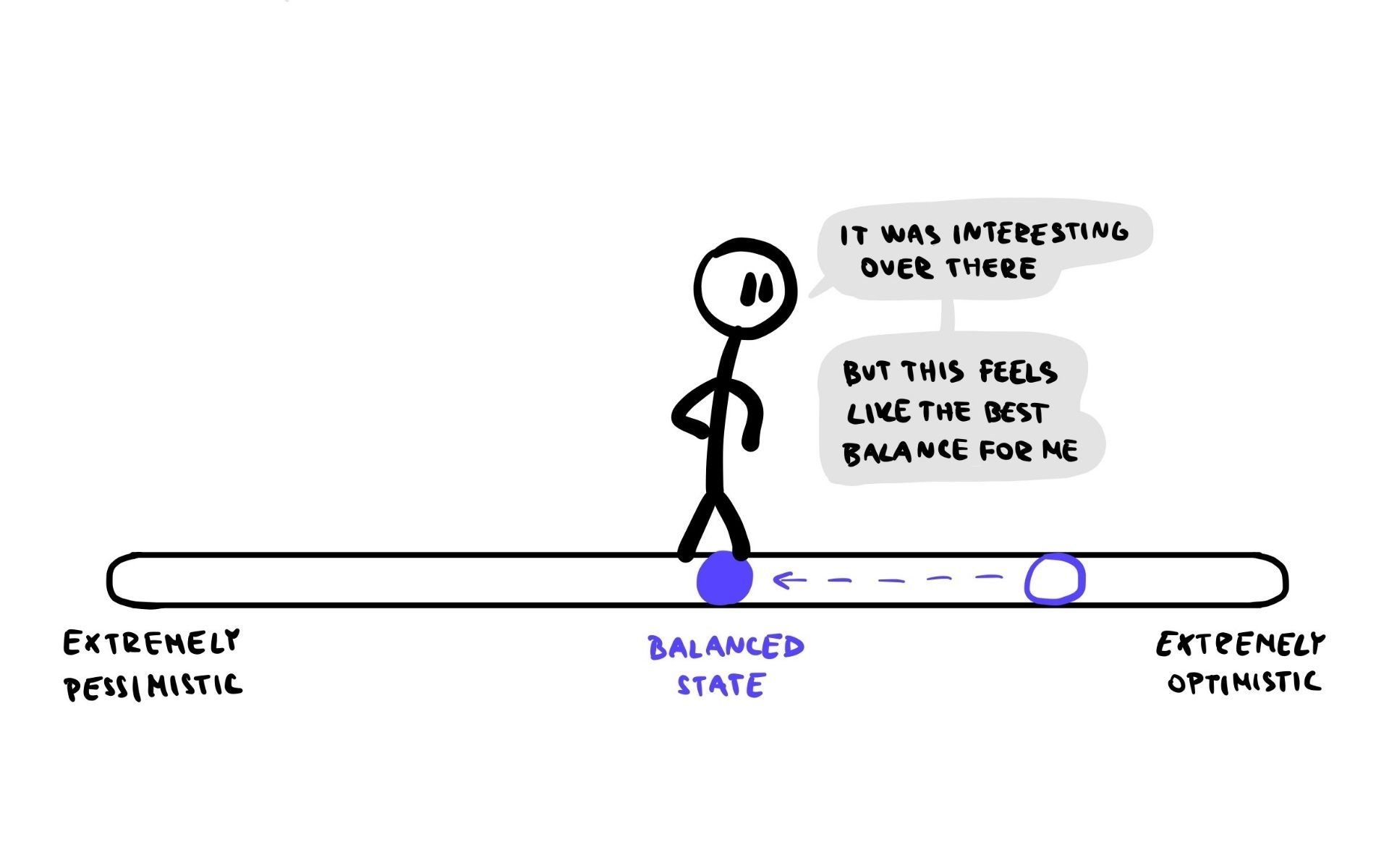
Getting to a balanced state
Until you end up somewhere around the middle at a relatively balanced state where you don’t need to overcompensate for your shortcoming.
In the case of optimism training, this would mean you can enjoy both the pleasures of positive thinking and the utility of critical thinking.
How to overcompensate like a boss
The difference between doing this well or poorly is in whether you’re aware it’s happening. Self-awareness is key here.
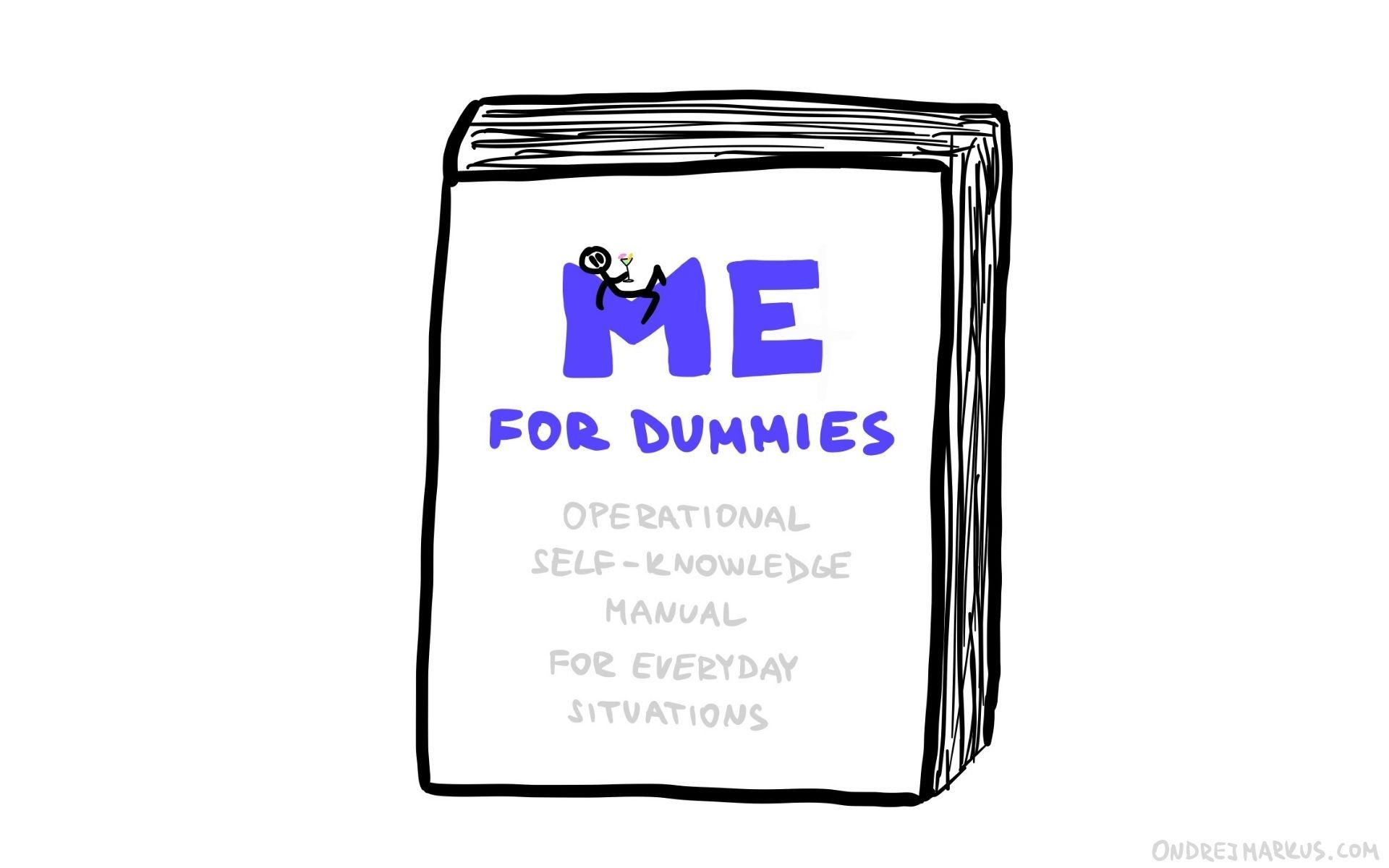
Knowing what happens in your head is a superpower
When you are not aware, you might get anxious because you always seem to change things up. You feel unstable. Like you’re zig-zagging through life randomly, never sticking to what you started.
Once you accept overcompensation as a way to find balance, you can be at peace with visiting extremes on your way to figuring out what does and doesn’t work for you.
It makes you more patient and compassionate towards yourself and others as you navigate your life by trial and error.
Real-life examples
Let’s look at some concrete examples of how you might use overcompensation in different areas of your life.
What they have in common is that they’re an extreme method you apply in the short term to find a sustainable balance in the long term.
- Diet: Cut all unhealthy food from your diet for a while. It’s usually easier than cutting just some of it. The same goes with alcohol and anything else we consume.
- Exercise: Find one simple workout routine and do it every day. The goal is to build the exercise habit first and find a balanced routine later.
- Generosity: If you experience envy a lot, try overcompensating in generosity. Go out of your way to be proactively generous to people in your life. Help someone every day without expecting anything in return.
- Complaining: Don’t like to complain? Try the 21-day no complaining challenge.
- Making friends: Want more friends? Invite someone you don’t know for a walk/coffee/chat every day.
- Procrastination: Watch Netflix/Youtube when you should be working? Try a dopamine detox.
Again, these are not necessarily meant to be sustainable forever. They mostly serve as extreme vehicle to get you to a balanced state.
However weird might some of them be, you never know what will work for you until you try.
Give yourself and others permission to go nuts for a while to find the balance that works for you.